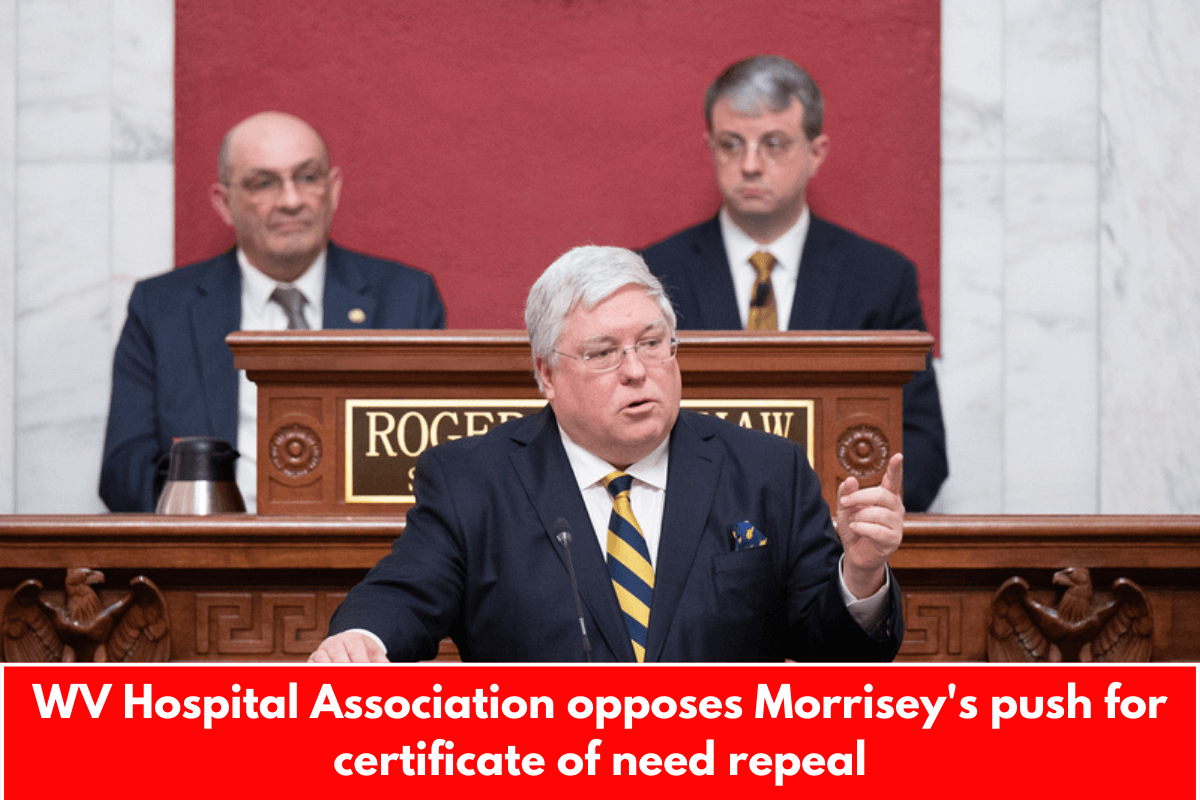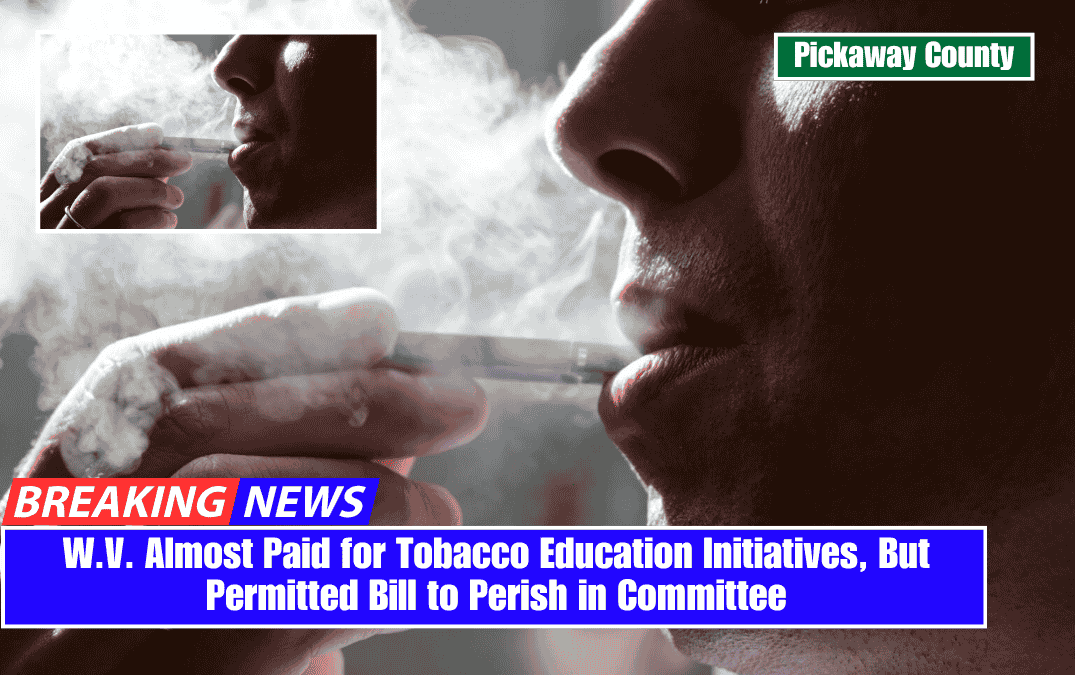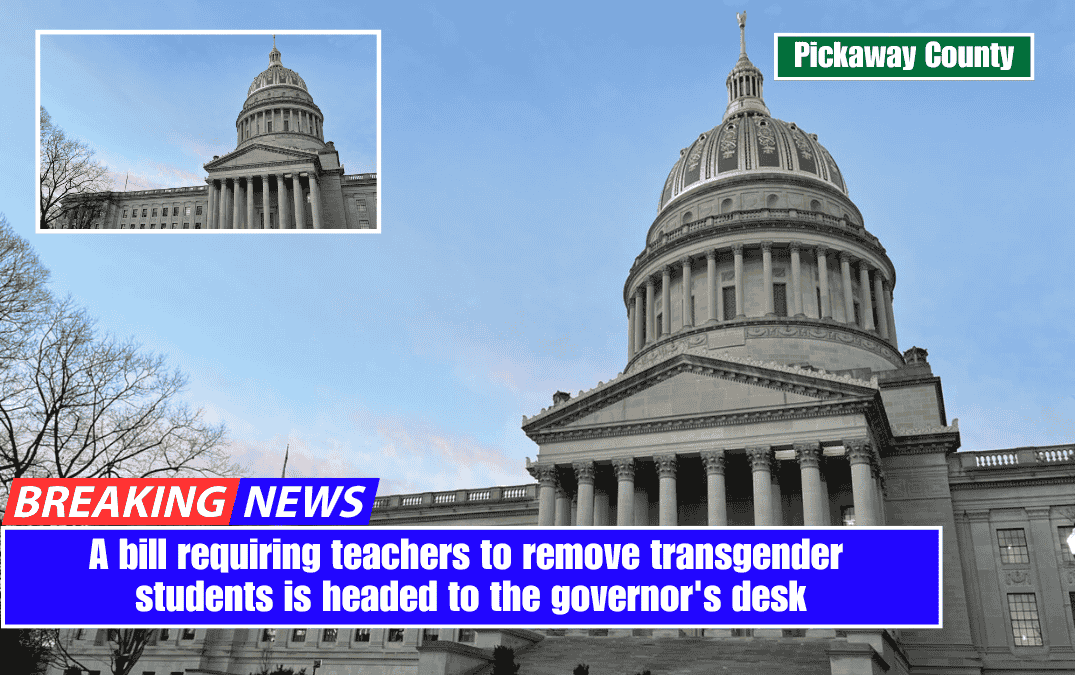Gov. Patrick Morrisey speaks to the public during his first State of the State address on February 12, 2025, calling for the repeal of West Virginia’s certificate of need laws. (Perry Bennett, West Virginia Legislative Photography)
The West Virginia Hospital Association, which represents 72 hospitals across the state, reiterated its opposition to a policy proposed by Gov. Patrick Morrisey in his State of the State address last week.
Morrisey, in one of the few statements he made during his speech about health care in the state, called for the complete repeal of the certificate of need, or CON. In a statement issued Friday, Hospital Association President Jim Kaufman reiterated the organization’s support for keeping such laws in place.
“We remain committed to preserving the certificate of need program, not repealing it,” Kaufman stated in the statement. “The program has proven vital to maintaining our robust hospital delivery system in West Virginia, which employs over 53,000 dedicated professionals providing around-the-clock care.”
Kaufman stated that the Association, as well as its member hospitals, “stand ready to work with the governor” to expand health care access in West Virginia, where health care deserts are common and specialty services can be difficult for patients to find.
CON is a regulatory process overseen by the West Virginia Health Care Authority that requires entities seeking to establish or expand health care services in the state to provide a legal document demonstrating that the new services address an unmet need in the area.
Those interested in obtaining a certificate of need can receive technical assistance from the Health Care Authority before applying to determine what need they meet. Services are approved based on their needs, and different services — such as hospice care, ambulatory centers, clinics, private practices, and specialty services — use different methodologies.
During his State of the State address, Morrisey described the process as “big government activism at its worst” and promised that repealing it would “move the state toward the free market.” Proponents of the repeal, including the Cardinal Institute and Americans For Prosperity, two small government and free market-focused conservative policy groups, believe that repealing the laws will increase competition in West Virginia’s health-care system. Americans for Prosperity played a significant role in Morrisey’s election as governor last year.
However, those who support CON laws, including Kaufman and the Hospital Association, as well as the majority of its member hospitals, are concerned that repealing the process will have an impact on health care services for the 75% of West Virginia patients who are government payers, which means they receive their insurance through Medicare, Medicaid, or the Public Employee Insurance Agency.
Kaufman, speaking against a CON repeal bill at the Legislature in 2022, stated that repealing the law would most likely result in an increase in the number of providers who only accept — and thus treat — patients with private insurance. Government insurance programs largely reimburse providers at a lower rate than the cost of care provided, leaving little incentive in the private market to provide services to government payers.
Expanding services only for private payers, he said, would “siphon off” resources from facilities that treat people who can’t afford such insurance or can’t pay for services themselves. This would disproportionately affect rural and poorer areas of the state, as there would be fewer patients.
Kaufman stated on Friday that West Virginia’s hospital and health-care system has had no trouble expanding services to treat all patients, not just those with private insurance.
“As West Virginia’s largest employers, our hospitals have invested billions to expand services across the state. In fact, our state stands out nationally for having opened three new hospitals in the last five years, while rural facilities elsewhere have closed,” Kaufman said. “Through innovation, partnerships, and telehealth initiatives, among many other advances, West Virginia hospitals remain committed to our mission of improving the health of all residents in our communities.”
The governor requested that a bill be introduced in the Senate last week. The proposed Senate Bill 453 — which has yet to be considered after being introduced on Thursday — would remove nearly all language requiring a health care provider to obtain a certificate of need before providing services from state code.
The regulatory program’s sunset date is set for 2026 under the proposed law. According to the bill text, prior CON decisions will have “no force and effect” by 2026.
The bill would also abolish the West Virginia Health Care Authority and all positions within the department. According to the text, those who work there may apply for positions in other state departments. Any funds left in the agency at that time would be transferred to the state’s general revenue fund.
The Health Care Authority is a small state agency with only five employees, according to its staff directory. Since the 1990s, the Legislature has significantly restructured the HCA, which was established in 1987 as the Health Care Cost Review Authority and operated as an independent state agency. In 2017, the agency was transferred to the state Department of Health and Human Resources, which now operates as three separate agencies. In 2020, lawmakers cut the HCA’s budget by more than 50%, resulting in a reduction in staff and oversight services previously provided.
While CON accounts for the majority of the HCA’s work, the agency is also in charge of collecting financial disclosures from state-licensed health facilities. Though this data is primarily used to analyze CON applications within the agency, it is the only publicly accessible source of such information.
Though critics of the CON process claim it restricts the types of services that can be offered in the state, denials issued through the CON system are uncommon. Of the hundreds of applications filed, there were no denials listed in the 2021 or 2022 annual reports, though a handful of applications were withdrawn from consideration, possibly due to ineligibility for the certificate.















